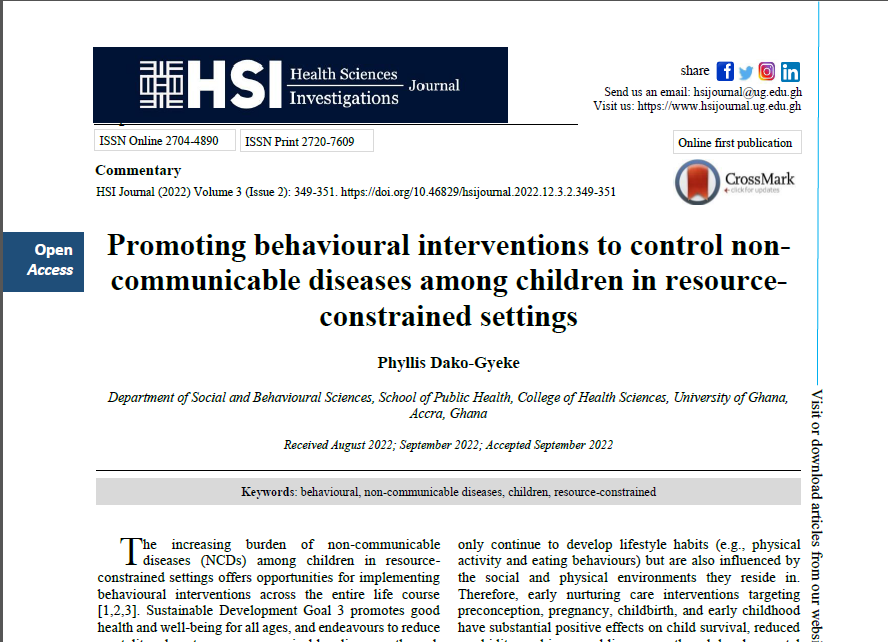Promoting behavioural interventions to control non-communicable diseases among children in resource-constrained settings
Promoting behavioural interventions to control non-communicable disease
Abstract
The increasing burden of non-communicable diseases (NCDs) among children in resource-constrained settings offers opportunities for implementing behavioural interventions across the entire life course . Sustainable Development Goal 3 promotes good health and well-being for all ages, and endeavours to reduce mortality due to non-communicable diseases through prevention and treatment. Globally, the distribution and nature of non-communicable diseases are shaped by exposure to behavioural, social, and environmental factors. This drives the argument that social conditions experienced during early life have long-lasting effects that contribute to NCDs. Social and societal drivers of NCDs often referred to as the “causes of the causes are profound in low-income and middle-income countries (LMICs), which bear 82% of NCD deaths.


